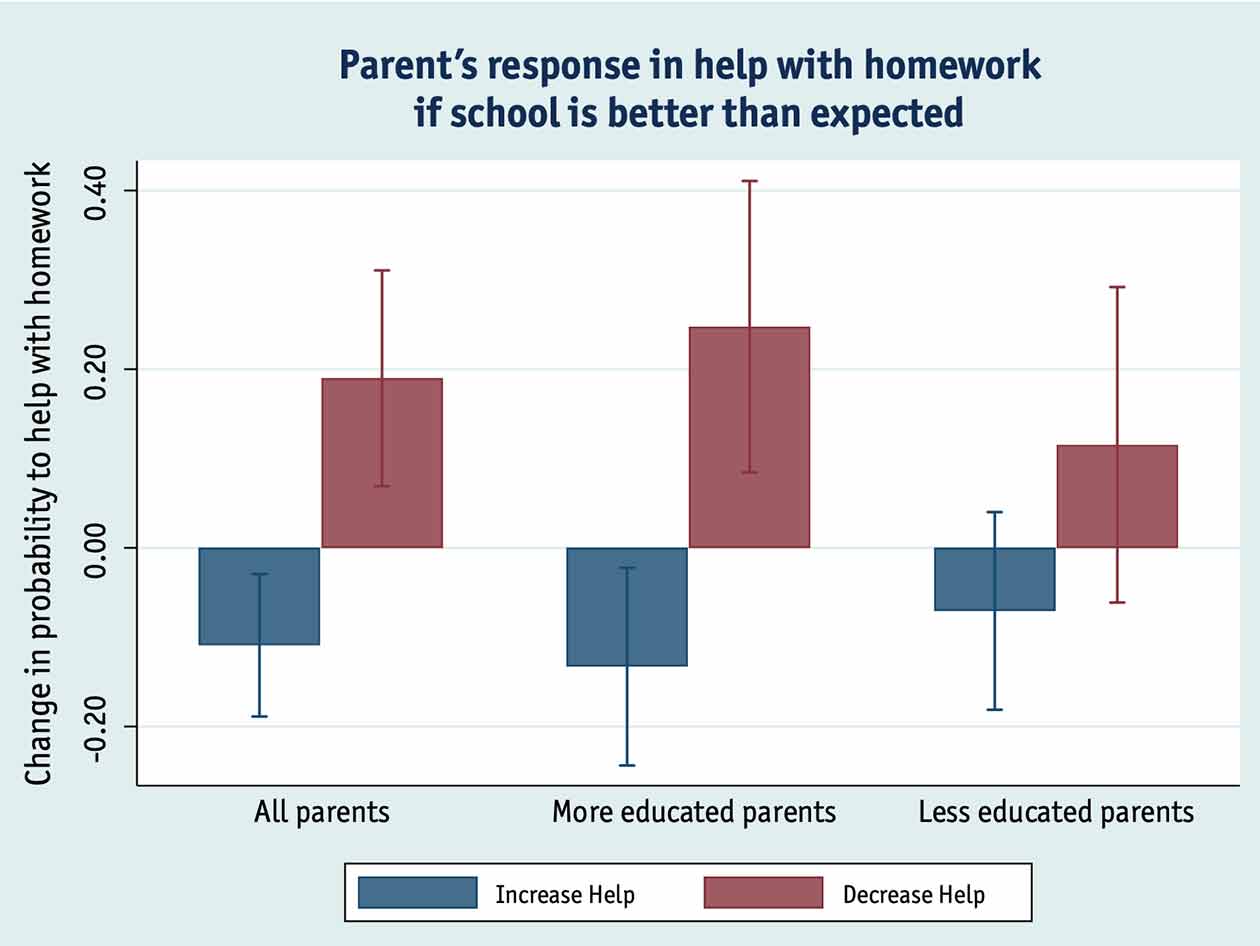Introduction
Ofsted, the Office for Standards in Education, regularly inspects around 26,000 schools in England and rates their quality from ‘outstanding’ to ‘inadequate’. Existing evidence shows that these school ratings affect households’ school choices and local house prices, but we know very little about how parents with children already at school react to ratings, if at all. The published rating can provide news for parents if their school is judged to be of better or worse quality than they anticipated.
We study how parents react when they receive good or bad news about the quality of their child’s school. Specifically, we ask: do parents increase or decrease the time they spend helping with homework at home? Families may increase their time investments in their children if they feel more motivated by the fact that their child’s school is better than they had previously thought. On the other hand they might feel they can afford to reduce such investments if they feel the school is doing a better job than anticipated.
Our study is based on a unique combination of survey data from the UK Household Longitudinal Study with administrative data on Ofsted inspections and school performance between 2009 and 2015. We use households that received an Ofsted inspection in the same academic year as their survey interview, specifically comparing households that know the outcome of the inspection when interviewed to those where the outcome is still unknown.
Key findings
- Parents typically reduce help at home when perceived school quality increases. Parents receiving good news are around 20 percentage points more likely to reduce help with homework, for example.
- While parents’ reaction to good news is pronounced, their reaction to bad news about school quality is much more muted. That is, parents that receive bad news do not respond by significantly increasing their help at home.
- Taken together, parents who receive good rather than bad news about the quality of their child’s school are 24 percentage points more likely to reduce the help they give their children with homework and 14 percentage points less likely to increase it.
- Providing information through Ofsted inspections is likely to reduce overall parental investments, because parents in schools that receive good news react more strongly than parents in schools with bad news.
- Information provided by Ofsted inspections is also likely to increase equality in how much parents help their children across schools in England. This is because good schools (often with highly motivated parents) are more likely to receive more good news about school quality, leading to lower investments by parents. This makes the help received by children in good schools more similar to that received in bad schools.
- The shifts in help provided at home are reflected in children’s test scores: children whose families received good news early in the academic year performed significantly worse in the GCSE exams than those where good news was more recently revealed, suggesting that the reduced help by parents lowered children’s exam performance. This is despite children’s own time investment in schoolwork increasing in response to the same information.

Authors’ main message
Policy makers have thought a lot about how providing school quality information (such as Ofsted ratings),
combined with parents’ freedom to choose schools, induces competition between schools and hopefully drives up schools’ standards. Much less thought has been given to the responses of families whose children are already enrolled in schools and receive new information about school quality.
Our research studies this interaction between school and parent investments, and shows that parents’ responses are large and meaningful. This may explain why previous research has found it hard to pinpoint the benefits of attending high-performing schools.
The significant change in how much parents help their children at home after receiving news about their child’s school quality affects important test score outcomes and the inequality in parents’ investments across schools. This suggests that much more thought should be given to the specifics of how school quality information is provided and how it can be framed and possibly targeted to prevent adverse effects.
www.iser.essex.ac.uk/research/publications/working-papers/iser/2019-03
DOI: 10.5526/nbn8-hc39
